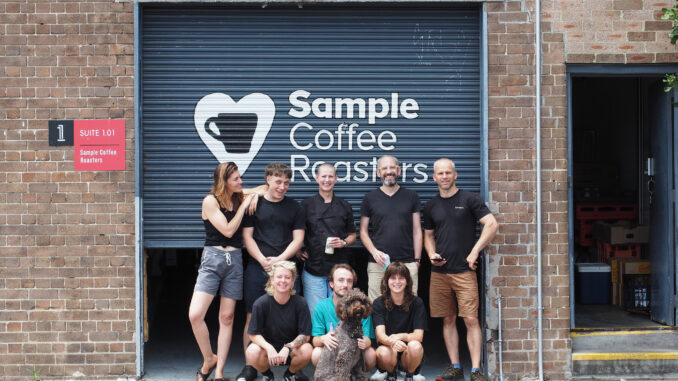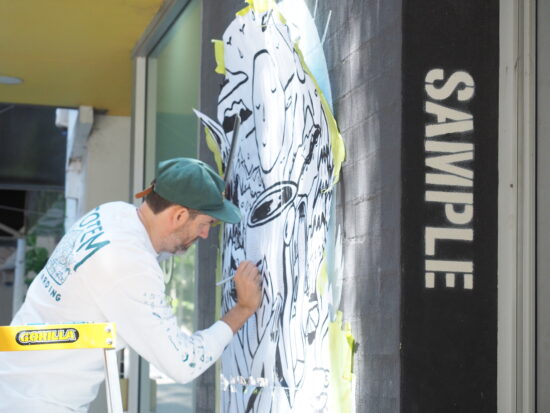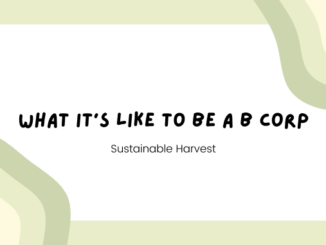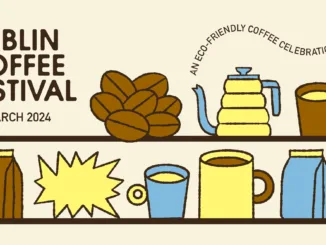
We chat with Sample Coffee Roasters, a Sydney-based micro-roaster, about the challenges and rewards of earning B-Corp certification.
BY YKER VALERIO
SPECIAL TO BARISTA MAGAZINE ONLINE
Photos courtesy of Sample Coffee Roasters
From the editor: Lately, we’ve been getting into the details of achieving B Corp certification, and getting perspectives from different players in the coffee industry who have it. Today, we wrap up the series by interviewing the Sydney-based micro-roaster Sample Coffee Roasters.
The international coffee trade has been working hard toward sustainable practices for the past few decades, and massive forces are at play. In the past few years, small coffee roasters have been a part of this effort, taking steps to boost coffee sustainability in ways including packaging materials, better wages, and transparency reports.
Sample Coffee Roasters belongs to these new players in the industry as a B Corporation. Based in Sydney, Sample Coffee sources, roasts, and serves coffee in its three coffee shops, and offers a nationwide coffee subscription service.
Today we explore their journey as a coffee company and their experience as a B Corp.

Why Become a B Corp?
According to Ainhoa Martínez from Sample Coffee, “Back when we decided to become a B Corporation in 2018, there were not a lot of companies with this certification—certainly not many coffee roasters and cafés in Australia. However, the little group of brands that we knew had it felt quite cool, forward-thinking, honest and respectable: Patagonia, Koskela, Caravela, Bellroy …“
Additionally, the B Corp certification drew the Sample founders’ attention because “it conveyed a genuine effort from the company to excel in different impact areas—not just environmental (i.e., organic, UTZ) or social (i.e., fair trade),“ says Ainhoa.
In this regard, the company’s values and interests were close to the B Corp aim and perspective. “At the time, we were evolving from a micro-roaster to a somewhat medium company where relationships, community, and lands were already placed at the heart of our daily decisions,“ says Ainhoa.
In other words, Ainhoa explains that the company felt they were working as a B Corp already. The certification would help them differentiate, better communicate their values and purpose, and gain customers’ trust.
How to Implement B Corp Standards
Sample Coffee Roasters went from a small company to a medium-sized one when it decided to become a B Corp.
Ainhoa says that “many initiatives and processes that can be considered as ’B Corp’ were already embedded in our day-to-day way of doing things. For example: looking for less impactful packaging options, corporate giving events or systems, community and staff support initiatives …“ The assessment helped Sample Coffee write down its policies, and turn some of its usual practices into formal procedures.
Additionally, the certification process helped the company to “discover other ways to ’be better,’ setting new goals and missions,“ says Ainhoa.
Overall, implementing B Corp standards doesn’t mean accomplishing a goal and conforming to that. “B Corp doesn’t mean perfection, but a commitment to do better in the corporate world, practicing transparency and accountability,“ says Ainhoa.

How To Know When To Become a B Corp
In practical terms, Ainhoa says that “it’s not necessary to be a B Corp to be a ’good’ business; one can do great things without adhering to this or any certification.“ Still, Ainhoa explains becoming a B Corp helps “gain the conscious customers’ trust because it shows you’ve put in the work and are doing as you say, adhering to pretty high standards.“
Additionally, the certification process helped Sample Coffee Roasters formalize its practices and improve several of its business processes based on B Corp standards.
Ainhoa recommends that interested companies get a grasp of the B Corp certification by taking the B Impact Assessment. “It’s definitely recommended to have a look at the B Corp assessment, which is free and open for all,” Ainhoa suggests. “Going through all the questions gives you an idea of what it takes to ’do better’ in the different impact areas, and those things you can take on board and embed in your practices straight away.“
ABOUT THE AUTHOR
Yker Valerio (he/him) is a freelance content creator. After more than 10 years of working as a management consultant, he started the blog Bon Vivant Caffè to share his passion for specialty coffee.




